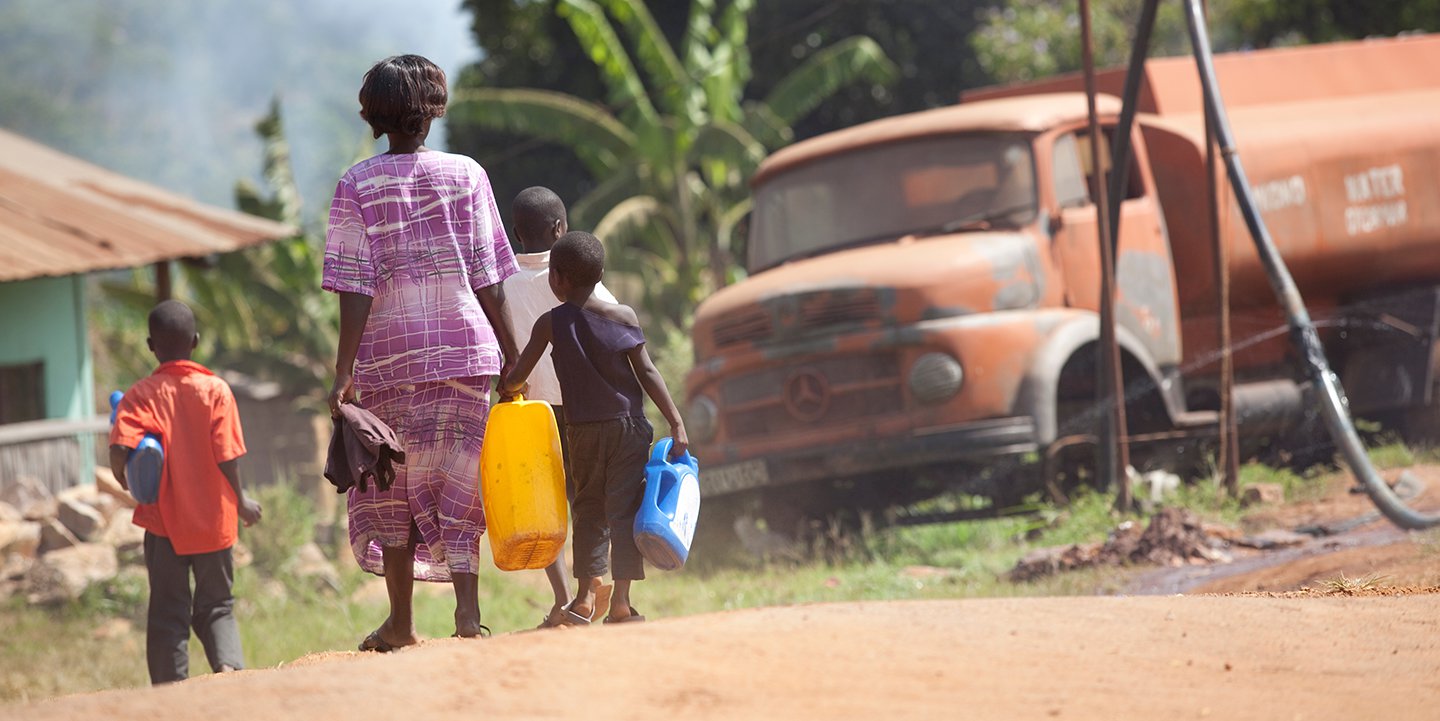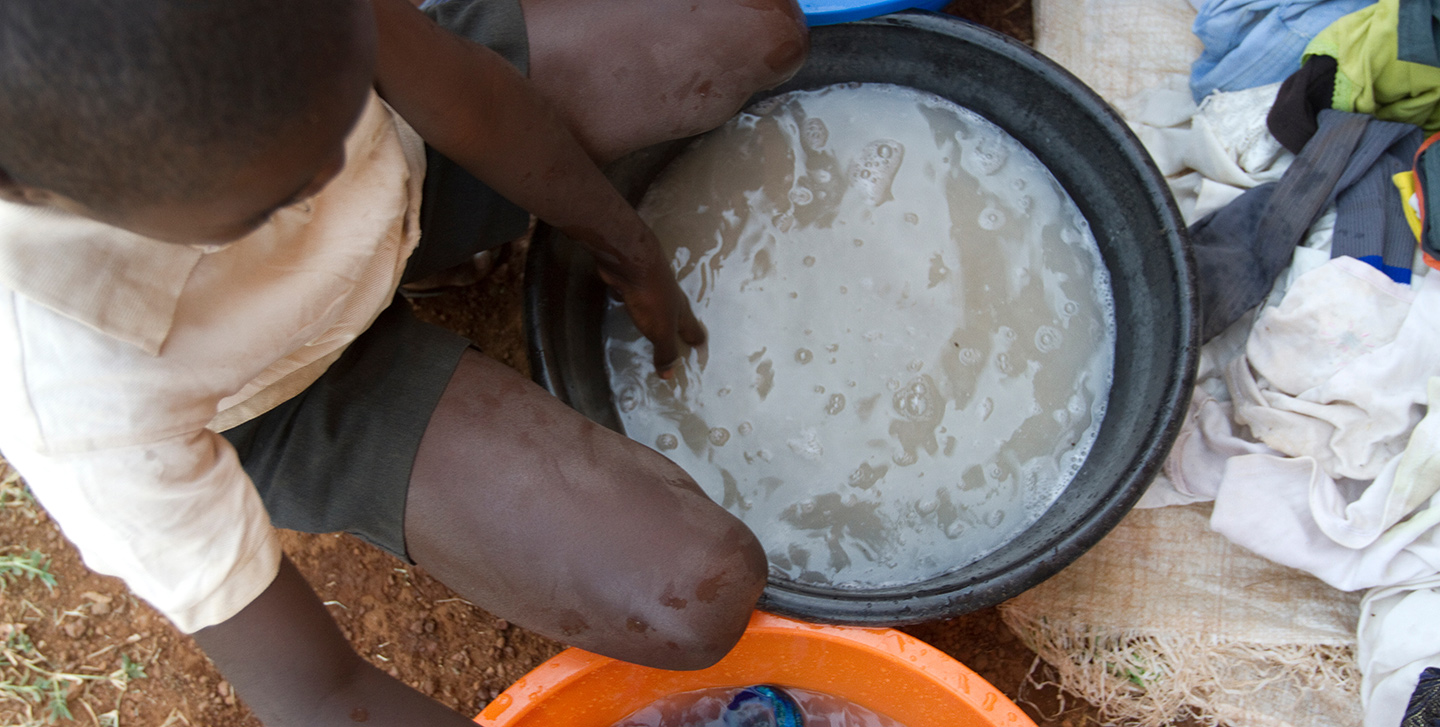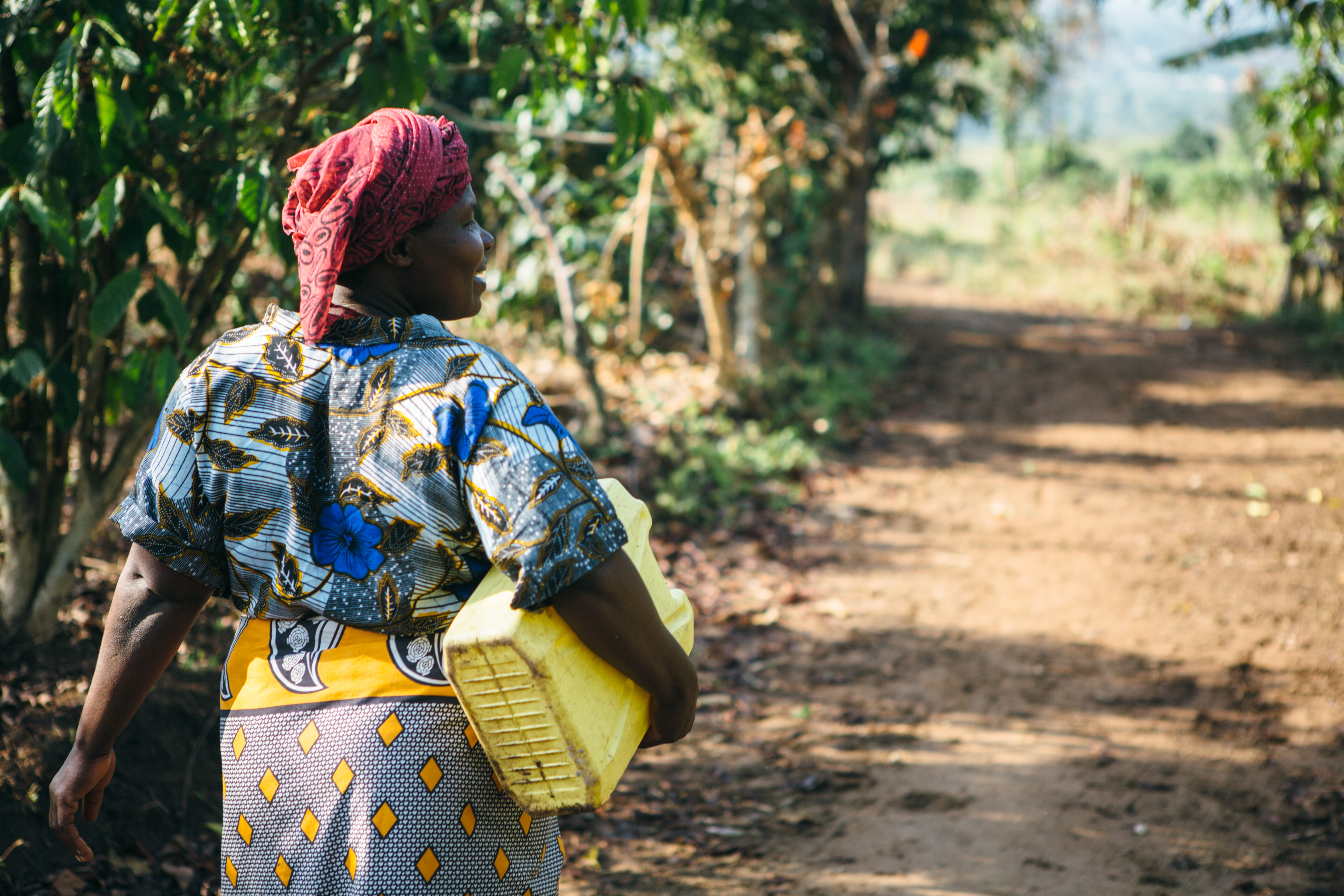Permanent Solutions are Innovative Solutions
Water
Water For People-Uganda has been exploring different approaches to supporting sustainable water systems. A critical aspect of the program is working to establish management models specific to the water infrastructure. In Kamwenge, Water For People-Uganda is working to increase the sustainability of water systems by exploring the role of the private sector and the water business’ potential to manage water systems; entrusting water entrepreneurs with the management of water systems, a model called Water as Business (WAAB). WAAB includes supporting water entrepreneurs and the metering of hand pumps and piped water supplies to track water usage and charge a tariff based on the amount of water collected.
By tracking water usage and monetizing consumption, Water For People-Uganda is using the profit generated to address the chronic issue of broken water pumps and keep water flowing in rural Uganda. To support this system, Water For People supports the training of entrepreneurs that manage a series of hand pumps, private operators that manage piped water supply systems, and hand pump mechanics that repair these systems. Additionally, Water For People sensitizes communities to this new approach of water system management.
Sanitation
Water For People-Uganda is promoting a market-based approach to sanitation by working with sanitation businesses and testing different approaches to increase demand and supply of sanitation services. A key component of Water For People-Uganda’s sanitation work is its research, which is done through the SaniHub, a team of engineers that researches and tests different sanitation technologies to best meet community sanitation needs. Through the SaniHub, technologies like the Rammer, a simple mechanical pit emptying technology, the Decentralised Faecal Sludge Treatment System (DEFAST) to treat fecal sludge, the tin toilet which serves areas with high water table and collapsing soils, and the Durasan and tiger toilets, among others, have been developed. The SaniHub team is currently researching and testing the Pump and Go pit emptying device, which makes pit emptying faster, the Grappler to facilitate efficient transportation of sludge, and black soldier flies to decompose fecal sludge.
Water For People-Uganda also supports various sanitation businesses, connecting them to the tried and tested SaniHub technologies and providing them business support. Water For People works to identify sanitation entrepreneurs, whether they be pit toilet emptiers, sanitation technology fabricators, or masons to construct toilets, and connects them to the financial capital necessary to run their business, while also providing direct business development services.
Current Programming
Water For People-Uganda continues to work toward increasing water coverage in Kamwenge, through the construction of new piped water supply systems, the rehabilitation of a gravity fed scheme, the motorization of deep boreholes, and the establishment of rainwater catchment systems in schools. Water For People is also working to refine its water management structures. In 2015, Water For People piloted three different water management schemes, based on the type of water infrastructure. In 2016, Water For People will hire a full time Business Development Support employee that will provide increased support to different water entrepreneurs while modifying the existing management structures to best fit the region’s needs. To promote local water resources management, Water For People will establish gardens at hand pumps, will elaborate water safety plans, and will plant trees to increase recharge. At a national level, Water For People will train sector players in developing district investment plans and will strengthen the Everyone Forever Hub.
Water For People-Uganda is also working with its partners to increase sanitation levels through its Sanitation as a Business program. To scale up sanitation technologies and waste treatment, two decentralized Faecal Sludge Treatment Systems will be constructed in Kitgum and Lira. The SaniHub team is developing innovative sanitation solutions that will be desired and used at the household and community levels while also piloting rural household sanitation financing by working with finance institutions.
To ensure the impact and sustainability of these efforts, Water For People-Uganda implements impact monitoring, training sessions, and partnerships with its public and private sector partners to ensure water and sanitation services can be supported and sustained without relying on another external charity organization.





